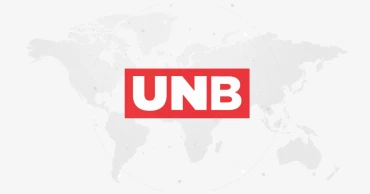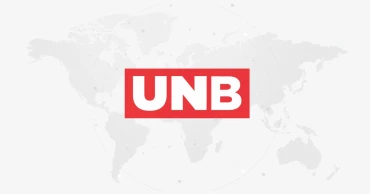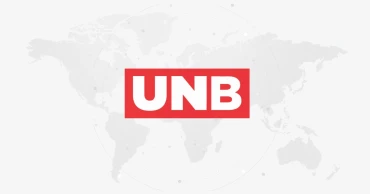liquidity crisis
Banks in Bangladesh faced catastrophic year in 2024 amid liquidity crisis
Bangladesh’s banking sector endured a catastrophic year in 2024, grappling with an acute liquidity crisis and record-high non-performing loans (NPLs).
Depositors’ trust in banks has been severely shaken as many faced unprecedented difficulties withdrawing their hard-earned savings.
Economists and bankers have described 2024 as one of the worst years for the sector.
Defaulted loans soared to an unprecedented Tk 2.84 lakh crore, while total bad loans exceeded Tk 7.0 lakh crore by September.
For the first time in years, the Bangladesh Bank (BB) operated more independently as a regulator following the political changeover in August. But this independence also exposed deeper systemic issues.
Experts fear that the defaulted loans could rise to 30 per cent of total loans once calculated using IMF standards, which include previously hidden debts.
Hidden Debts Reveal Crisis Depth
The sharp rise in defaulted loans stems from a revised default-counting mechanism for term loans, which shortened the overdue classification period from nine months to six months.
The Bangladesh Bank plans to further revise this system in March 2025, reducing the classification period to just three months.
According to BB’s latest statistics, NPL volumes jumped nearly 96 per cent in less than a year, reaching Tk 2.84 lakh crore as of September 30, compared to Tk 1.45 lakh crore on December 31, 2023. Manufacturing accounts for 55 per cent of these defaulted loans.
Selim RF Hussain, managing director and CEO of BRAC Bank and chairman of the Association of Bankers, Bangladesh (ABB), acknowledged the severity of the issue:
Read: Many struggling banks recovering: Bangladesh Bank Governor
"The hidden loans are now coming out gradually as Bangladesh is now pursuing international best practices for the banking industry. The defaulted loans volume will be much higher once there is conduct of forensic audit."
Economic and Political Turmoil Contribute
The rise in NPLs has also been linked to broader economic and political factors.
Political unrest in July and August, coupled with floods in Cumilla, Feni and Noakhali, disrupted industrial operations and supply chains.
Syed Mahbubur Rahman, managing director and CEO of Mutual Trust Bank (MTB), said,"During the period, goods transportation across the country faced problems while the demand side was weak under higher inflationary pressure on the economy."
Interest rate hikes under a tighter monetary policy aimed at curbing inflation further compounded the problem. The central bank raised the policy rate to 10 per cent, increasing borrowing costs and pushing more businesses into default.
Read more: 13 banks submit answers to central bank for unusual dollar purchases that hiked exchange rate
Musrur, a former World Bank economist and chairman of the Policy Exchange of Bangladesh, cited political changes as another significant factor, “"There were many businessmen loyal to the ousted Awami League government, and they are now absconding. Their loans have become defaulted, which may be one key reason behind the rise in NPL volumes."
Implications for the Banking Sector
The share of classified loans has risen sharply, from 9 per cent at the start of 2024 to 16.93 per cent by September.
Experts warn this could climb to over 30 per cent once hidden loans are fully accounted for.
The implications are severe for the economy, as rising defaults threaten to limit access to credit for potential borrowers and erode confidence in the banking system.
1 year ago
Customers of a half-dozen banks, struggling to withdraw deposited money
Sadequr Rahman, a 73-year-old man, attempted to withdraw remittance funds from the Savar branch of Social Islami Bank Limited (SIBL), the money which his son had sent from Saudi Arabia in October.
Raisuddin, son of Sadequr, sent Tk 100,000 on 24 October to cover family expenses and medical costs for his elderly parents.
Bangladesh Bank provides liquidity guarantee of Tk 6,585 crore to 7 banks
As of November 13, Sadequr had managed to withdraw Tk 35,000 in three installments.
Speaking with this correspondent over the phone, Sadequr said he needed to withdraw at least Tk 70,000 to meet his family’s expenses. But, bank officials requested that he take the money in several installments, as SIBL faces a severe cash shortage.
Like Sadequr, many customers of crisis-hit banks associated with the S Alam Group are struggling to access their hard-earned deposits due to widespread loan defaults. Borrowers have gone into hiding, and their businesses have become "sick" due to mismanagement of funds, according to an industry insider.
Abul Hossain (name changed), an official at the Savar branch of SIBL, told UNB that the bank is facing significant difficulties, as many depositors are seeking to withdraw their full balances.
He said the branch holds deposits amounting to Tk 87 crore, and that if even one-third of depositors attempt to withdraw money at short notice, it would be challenging for any bank.
According to Bangladesh Bank (BB) regulations, deposited funds are invested in various long-term loans.
No liquidity crisis, Tk 5,585cr support provided to 7 banks: Bangladesh Bank
Hossain added that they are providing cash to depositors in small amounts and have assured them that their money will be returned in installments.
The circulation of cash has decreased recently, but the bank’s management is working to recover its loans by regularising loan installments.
Under the central bank’s (BB) guarantee to access liquidity support from the inter-bank money market, Islami Bank, Social Islami Bank, First Security Islami Bank (FSIB), Global Islami Bank, National Bank, and Union Bank have received several thousand crore taka in liquidity support from more financially sound banks.
Despite this, depositors continue to gather at branches, head offices, and ATM booths of these cash-strapped banks, but they often cannot withdraw the amounts they need.
Apart from National Bank, the Chattogram-based conglomerate S Alam Group has a controlling stake in the boards of the other banks now facing liquidity crises.
A significant portion of loans was directed towards the S Alam Group, with funds reportedly siphoned abroad, rendering the loans in default. Consequently, banks linked to the S Alam conglomerate are experiencing a substantial cash deficit relative to customer demand.
Muhammad Foranullah, the acting Managing Director of SIBL, told UNB that the bank is collaborating with the central bank to arrange instant liquidity solutions to meet cash demands.
The bank has also collected loan installments and deposits from customers amounting to approximately Tk 1,500 crore over the last two months, which has boosted SIBL’s cash flow.
In response to a query, he said SIBL is currently meeting depositor cash demands as required. But, some branches are encountering issues when multiple customers attempt to withdraw cash simultaneously.
Foranullah went on to say, “Everyone is aware of the problem, but it will be prolonged if customers continue to withdraw cash beyond their immediate needs. Depositors will receive their money as the bank returns to normal operations.”
Mohammad Abdul Mannan, the chairman of FSIB, mentioned that normal banking activities have resumed following liquidity support from the inter-bank money market.
He explained that the bank has successfully recovered substantial funds from borrowers since its board was restructured.
He noted that FSIB is prioritising repayments to meet customers’ basic needs, medical emergencies, urgent situations, and remittance encashments.
The bank is also working to repay larger depositors in phases.
Abdul Awal Mintoo, Chairman of National Bank, told UNB that the bank is paying its customers, though large withdrawals will be processed in phases.
He said these problems have not arisen overnight but have developed over several years.
Mintoo assured that the bank’s position would improve over time, asking depositors to remain patient.
1 year ago
Borrowing at 9 percent could be troubling for Islami, Al-Arafah and National Bank: Economists
Some private sector banks in Bangladesh are in deep crisis because of lack of adequate liquidity and are being forced to borrow money from state-owned Sonali Bank at a 9 percent interest rate to stay afloat.
Islami Bank, Al-Arafah Islami Bank and National Bank are borrowing money from Sonali Bank at a 9 percent interest rate, which is the highest commercial lending rate at present.
Economists and banking sector insiders say that it means the sector is passing through a hard time due to higher non-performing loans, lack of good governance and serious corruption in the management of the respective banks.
They say at present the call money rate is between 6-7 percent while banks are borrowing at 9 percent rate, which proves the crisis has mounted in these banks. They also say the troubled banks have no other options, but to borrow money.
Also read: 5 held for spreading rumors on social media about Islami Bank, S Alam group
Both such borrowing and lending are very risky considering the ability of investment of these banks, they say.
BRAC Bank Chairman Dr Ahsan H Mansur told UNB that some banks have lost their customers’ trust due to their mismanagement.
“As a result, people have withdrawn money from those banks,” he said.
Giving an example he said that the deposit of BRAC Bank increased by 33 percent in the last quarter while the deposit volumes of many banks decreased.
Also read: Scam-hit Islami Bank earns operational profit in 2022, Basic Bank reports loss
Usually, banks charge a higher interest rate to lend to other banks while considering it risky, he said.
On 13 December 2022, the Sonali Bank’s Board of Directors approved the investment of Tk200 crore in fund placement in favour of Islami Bank Bangladesh Limited and Tk75 crore in favour of Al-Arafah Islami Bank Limited at a 9 percent lending rate for a period of 90 days.
On the same day, the bank's Board also agreed to the proposal to extend the term of the Tk150 crore loans to National Bank for another six months at 9 percent interest subject to payment of the previous interest.
It is a normal practice that when a bank faces a liquidity crisis it borrows from another bank via the interbank money market.
Read More: 60% bank sub-branches must be outside city corporations, municipal areas: Bangladesh Bank
But the liquidity situation in three private sector banks is so critical that they are forced to borrow from another bank at the highest commercial lending rate.
According to the Bangladesh Bank's guidelines, banks can charge a maximum of 9 percent interest on all types of loans other than consumer loans such as auto loans and personal loans, in which case the highest lending rate ceiling is 12 percent.
Professor Dr Abul Barakat told UNB that any short-term borrowing at such a rate is not harmful, but it could create trouble while getting such loans will be lingering.
He said banks sometimes face a liquidity crisis, then it is required to borrow to meet the instant crisis. But a 9 percent lending rate for banks is high.
Read More: Bangladesh Bank expects first instalment of $4.5 b IMF loan to arrive by next month: Spokesman
“Then how much a bank would have to charge against any commercial loans,” he asked.
Sector insiders say corruption and lack of good governance are the main reasons behind such a crisis.
Some questioned the role and the ability of the central bank of Bangladesh to regulate commercial banks that fail to check corruption.
3 years ago
No liquidity crisis in banks, BAB says
Bangladesh Association of Banks (BAB), an organization of entrepreneurs and directors of private banks, in a statement has said that there is no liquidity crisis in the banks at present.
In a statement issued on Monday, BAB said that there is a negative campaign going on over liquidity crunch in the banking sector. But this is not true; liquidity in the banks is stable, it said.
Chairman of BAB and Exim Bank, Nazrul Islam Majumder, signed the notification.
read more: No liquidity crisis in banks: ABB
There is a liquidity of Tk 1.70 lakh crore remaining in the banking sector at present, which is more than the requirement, he said. BAB issued the statement after discussing the current situation of the banking sector in a meeting.
3 years ago
Covid-19: Hasina seeks global action to address liquidity crisis, debt burdens
Prime Minister Sheikh Hasina on Monday underscored the need for having ambitious and concentrated global action plans to address the liquidity crisis and sovereign debt burdens now and during the post-Covid-19 era.
The Prime Minister said this in a video message delivered at the ‘Financing for Development in the Era of Covid-19 and Beyond Initiative: International Debt Architecture and Liquidity’.
Canadian Prime Minister Justin Trudeau, Jamaican Prime Minister Andrew Holness and UN Secretary-General António Guterres convened the meeting of world leaders to urge the international community to take additional and urgent action to ensure a robust economic recovery.
The high-level virtual meeting aims to underscore the urgency of the need for more audacious and concrete action to provide liquidity and address debt vulnerability.
Moderated by BBC news anchor Laura Trevelyan, the meeting of heads of state and government featured opening remarks by António Guterres, Justin Trudeau and Andrew Holness.
Sheikh Hasina said a strong leadership is needed from the G7, G20 and OECD (Organisation for Economic Co-operation and Development) countries.
Also read: PM Hasina leads from front in battle against pandemic: Envoy
She said developed countries, MDBs (Multilateral development banks) and IFIs (International financial institutions) should scale up liquidity for vulnerable countries, such as large and new ‘Special Drawing Rights’ allocation.
“International debt architecture also needs to be revisited for suitable reform,” she said.
The Prime Minister also put emphasis on fulfilling the 0.7% ODA commitment of the developed countries. “They should also expand fiscal stimulus, concessional finance and debt relief measures for vulnerable economies.”
Finally, Sheikh Hasina said, there must be new international support measures for the graduating LDCs, at least till 2030, commensurate with the SDGs.
She said more than one year has elapsed since the outbreak of Covid-19 and the world is still struggling to overcome the socio-economic challenges posed by it. “The UN has estimated that the global economy is expected to lose nearly 8.5 trillion dollars in output over the next two years.”
Talking about Bangladesh, she said the government adopted comprehensive plans to minimise the impact of the pandemic on the lives and livelihoods of people.
Also read: Hasina to South Asian leaders: Work together for common prosperity
“We immediately rolled out a stimulus package worth more than 1.24 trillion taka equivalent to USD 14.58 billion, which is around 4.44% of our GDP.”
Hasina mentioned that the government has provided adequate liquidity and loanable funds in the market to ensure uninterrupted business operation. “We undertook supportive policy interventions to minimise shocks on foreign exchange market, foreign trade and finance, remittances, external borrowing etc.”
Despite the pandemic, the Prime Minister said, Bangladesh has still been comfortably servicing its debt with the reputation of ‘non-defaulting party’ because of the prudent borrowing policy of the government.
According to the UN website, the Covid-19 pandemic, which has claimed more than 2.6 million lives and resulted in more than 120 million confirmed cases to date, has gone beyond a health and humanitarian crisis to also become an unprecedented global development emergency.
Unprecedented action over the last year has helped control the spread of the deadly virus and mitigate its socioeconomic impact.
These emergency policies succeeded in flattening the curve of contagion and saved lives, but they also resulted in a 4.3% drop in global GDP, the first increase in extreme poverty since 1998, and the equivalent of 255 million jobs being lost in 2020.
Also read: Bangladesh achieved enviable successes in socio-economic indicators: PM Hasina
Covid-19-related economic shocks have already caused rating agencies to downgrade the credit worthiness of 42 countries since the start of the pandemic, including six developed countries, 27 emerging market economies, and nine least developed and low-income countries.
The current economic situation has also exacerbated inequalities between and within countries that pose significant threats to global efforts to build back better. The risk of a global sovereign debt crisis, in addition to the fourth global debt wave that the world entered prior to the pandemic, is now greater than ever.
Following a high-level roundtable with IMF Managing Director Kristalina Georgieva, World Bank Group President David Malpass, OECD Secretary-General Ángel Gurría and WTO Director-General Ngozi Okonjo-Iweala, approximately 20 heads of state and government will recommend measures to overcome debt and liquidity problems to help the world recover better and invest in the SDGs.
4 years ago
BGMEA should take instructions from govt on health and safety: SANEM
The SANEM (South Asian Network on Economic Modeling) Netizen Forum on COVID-19 Pandemic placed six suggestions and proposals to overcome the adverse impact of COVID-19 for Bangladesh.
5 years ago





.jpg)




